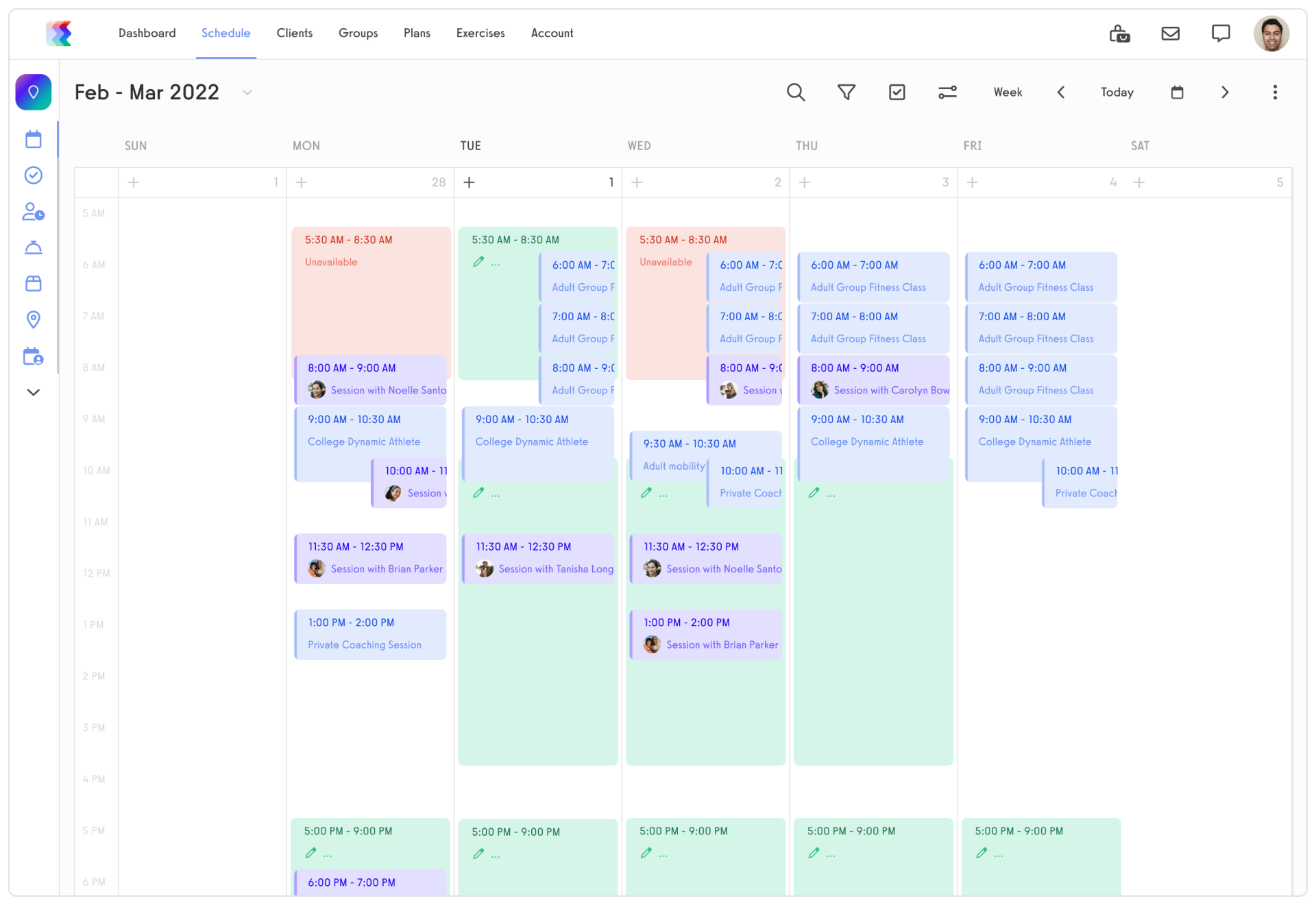Arnold Gym Management vs Fitness Manager
In the fitness industry, managing a gym or fitness center requires a team of dedicated professionals. Two integral roles in this industry are the Arnold Gym Management and the Fitness Manager. Although they both play important roles in the success of a gym or fitness center, there are key differences in their job functions, skills required, and the challenges they face.

Understanding the Roles and Responsibilities

Successful gym operation relies on a well-defined hierarchy and clear job responsibilities. Arnold Gym Management serves as the overarching authority overseeing the entire facility’s operations, while the Fitness Manager focuses specifically on the day-to-day management of the fitness-related aspects.
The Role of Arnold Gym Management
Arnold Gym Management is responsible for setting the strategic direction of the facility. They develop and implement policies and procedures, ensuring that the gym operates efficiently and in accordance with industry standards. They oversee the financial aspects of the business, such as budgeting, payroll, and revenue generation. Additionally, they manage the overall staffing, ensuring appropriate levels of qualified personnel are available at all times. This includes hiring, training, and supervising staff members.
Arnold Gym Management also plays a crucial role in maintaining the gym’s reputation and ensuring customer satisfaction. They are responsible for creating a welcoming and inclusive environment for all members. This involves implementing member feedback systems, addressing any concerns or complaints, and continuously improving the gym’s facilities and services. They also stay updated with the latest industry trends and technologies, keeping the gym at the forefront of fitness innovation.
Furthermore, Arnold Gym Management actively engages with the community to promote the gym and attract new members. They may collaborate with local businesses, sponsor fitness events, or participate in charity initiatives. By fostering strong relationships with the community, they contribute to the gym’s growth and success.
The Role of a Fitness Manager
On the other hand, a Fitness Manager focuses on the fitness-related aspects of the gym. They work closely with members, ensuring their fitness goals are met and their experience is satisfactory. Fitness Managers create and implement fitness programs tailored to the needs and goals of the members. They conduct initial assessments to determine members’ current fitness levels and design personalized workout plans accordingly.
In addition to individualized programs, Fitness Managers also organize group fitness classes to cater to a wider range of interests and fitness levels. They collaborate with certified instructors to offer a variety of classes, such as yoga, Zumba, spinning, and strength training. These classes not only provide members with diverse workout options but also foster a sense of community and camaraderie among gym-goers.
Furthermore, Fitness Managers provide guidance and expertise to the staff, ensuring they are adequately trained and equipped to provide quality fitness services. They conduct regular training sessions to update staff members on the latest exercise techniques, safety protocols, and customer service skills. By investing in staff development, Fitness Managers contribute to the overall professionalism and competence of the gym’s team.
Additionally, Fitness Managers are responsible for ensuring the facility’s equipment is maintained and functional. They conduct regular inspections, schedule maintenance and repairs, and keep an inventory of necessary supplies. This proactive approach ensures that members have access to safe and well-maintained equipment, enhancing their workout experience.
Moreover, Fitness Managers play a vital role in creating a vibrant and engaging gym environment. They may organize fitness events and workshops to educate and inspire members. These events could include guest speaker sessions, nutrition workshops, or fitness challenges. By providing opportunities for members to learn and grow, Fitness Managers contribute to their overall well-being and satisfaction.
In conclusion, the roles and responsibilities of Arnold Gym Management and Fitness Managers are crucial in ensuring the smooth operation and success of a gym. While Arnold Gym Management focuses on the strategic and administrative aspects, Fitness Managers are responsible for the day-to-day management of fitness-related activities. Together, they create a dynamic and customer-centric gym environment that promotes health, fitness, and community.
Key Differences in Job Functions
Although both Arnold Gym Management and Fitness Managers contribute to the overall success of a gym, they have distinct job functions that differentiate their roles.
Administrative Tasks and Responsibilities
Arnold Gym Management focuses on administrative tasks, such as developing policies, managing finances, and overseeing the overall operations. They are responsible for maintaining documentation, implementing safety measures, and ensuring compliance with legal and regulatory requirements.
In addition to these tasks, Arnold Gym Management also plays a crucial role in facility management. They handle maintenance requests, coordinate with external vendors, and ensure that the gym is well-equipped with the necessary equipment and supplies. This involves conducting regular inspections to identify any potential issues and taking proactive measures to address them.
Furthermore, Arnold Gym Management is responsible for managing customer service operations. They develop protocols and procedures for handling customer inquiries, complaints, and feedback. They also oversee the training of staff members in providing exceptional customer service, ensuring that every member’s needs are met and their experience at the gym is positive.
Fitness Managers, while also involved in administrative tasks, primarily focus on the fitness-related activities within the facility. They work closely with Arnold Gym Management to ensure the smooth execution of fitness programs and services.
Staff Management and Training
Arnold Gym Management takes on a broader role in staff management and training. They hire, train, and manage the entire staff, including Fitness Managers. Arnold Gym Management ensures the staff is adequately trained, motivated, and compliant with established protocols.
Moreover, Arnold Gym Management is responsible for fostering a positive and inclusive work environment. They encourage teamwork, promote professional development opportunities, and address any conflicts or issues that may arise among the staff. By creating a supportive and cohesive team, Arnold Gym Management ensures that all employees are working towards the common goal of providing excellent service to the gym’s members.
Fitness Managers work closely with the staff, providing guidance and support related specifically to fitness operations. They conduct regular performance evaluations, identify areas for improvement, and provide ongoing training to enhance the skills and knowledge of the fitness team.
Additionally, Fitness Managers play a crucial role in fostering a sense of community within the gym. They organize fitness challenges, group workouts, and events that promote member engagement and create a supportive fitness community.
Financial Management and Budgeting
Arnold Gym Management oversees the financial aspects of the gym or fitness center. They create and manage the budget, ensure revenue targets are met, and make strategic financial decisions to optimize profitability.
Furthermore, Arnold Gym Management conducts financial analysis to identify areas of improvement and implement cost-saving measures without compromising the quality of services provided. They negotiate contracts with suppliers, ensuring that the gym receives the best possible prices for equipment, supplies, and services.
In addition to financial management, Arnold Gym Management also plays a role in strategic planning. They analyze market trends, conduct feasibility studies for potential expansions or renovations, and make informed decisions regarding the growth and development of the gym.
Fitness Managers, while also involved in financial aspects, primarily focus on the fitness programs and member satisfaction. They monitor the financial performance of fitness programs, ensuring that they are cost-effective and align with the gym’s overall financial goals. Fitness Managers also gather feedback from members, analyze their preferences, and make recommendations to improve the fitness offerings and overall member experience.
Marketing and Promotions
Arnold Gym Management is responsible for developing marketing strategies and promotions to attract and retain members. They analyze market trends, conduct competitor analysis, and create marketing campaigns to increase membership and revenue.
Moreover, Arnold Gym Management utilizes various marketing channels, such as social media, email marketing, and partnerships with local businesses, to reach a wider audience and increase the gym’s visibility in the community.
Additionally, Arnold Gym Management collaborates with Fitness Managers to create targeted marketing campaigns for specific fitness programs and services. By leveraging the expertise of Fitness Managers, they ensure that the marketing efforts effectively communicate the unique value and benefits of the gym’s fitness offerings.
Fitness Managers may be involved in marketing efforts by promoting fitness programs and services within the facility. They engage with members, answer their questions, and provide information about the various fitness options available. Fitness Managers also play a role in organizing and promoting special events, such as workshops, seminars, and guest speaker sessions, to further enhance the gym’s reputation and attract new members.
Required Skills and Qualifications
To excel in their respective roles, both Arnold Gym Management and Fitness Managers need a diverse set of skills and qualifications.
Arnold Gym Management and Fitness Managers are responsible for overseeing the operations of a fitness facility and ensuring its success. They play a crucial role in creating a positive and motivating environment for both staff and members. To effectively carry out their responsibilities, they must possess a combination of leadership, communication, industry knowledge, and business acumen.
Leadership and Communication Skills
Both Arnold Gym Management and Fitness Managers must possess strong leadership skills to motivate and guide the staff. They are responsible for creating a cohesive team and ensuring that everyone is working towards the same goals. Effective communication skills are crucial to liaise with staff, members, and external stakeholders. They must be able to clearly convey expectations, provide feedback, and address any concerns or issues that may arise.
Furthermore, strong leadership and communication skills are essential for establishing and maintaining positive relationships with members. They must be approachable, attentive, and able to effectively address any questions or concerns that members may have. By fostering a sense of community and trust, Arnold Gym Management and Fitness Managers can create an environment where members feel supported and motivated to achieve their fitness goals.
Knowledge of Fitness Industry and Trends
Fitness Managers need in-depth knowledge of fitness industry best practices, exercise techniques, and nutrition. They must stay updated on the latest fitness trends and advancements to provide relevant and effective programs to their members. This includes understanding different training methods, equipment usage, and exercise modifications for individuals with specific needs or limitations.
Arnold Gym Management should have a broader understanding of the industry to make informed decisions and take advantage of emerging opportunities. They should stay informed about market trends, competitor analysis, and industry regulations. By staying ahead of the curve, Arnold Gym Management can ensure that their facility remains competitive and offers innovative services and programs to attract and retain members.
Business and Financial Acumen
Arnold Gym Management must have a solid understanding of business principles and financial management. They should be skilled in budgeting, financial analysis, and revenue generation. By effectively managing the financial aspects of the gym, they can ensure its long-term sustainability and profitability. This includes monitoring expenses, optimizing revenue streams, and identifying potential areas for growth or cost-saving.
Fitness Managers should also have a basic understanding of business operations to contribute to the financial success of the facility. They should be able to analyze data and metrics related to member retention, program effectiveness, and revenue generation. By leveraging this information, Fitness Managers can make data-driven decisions to improve the overall performance and profitability of the facility.
In conclusion, both Arnold Gym Management and Fitness Managers play critical roles in the success of a fitness facility. Their skills and qualifications, including leadership and communication, industry knowledge, and business acumen, are essential for creating a positive and thriving environment for staff and members. By continuously developing and honing these skills, Arnold Gym Management and Fitness Managers can ensure the ongoing success and growth of the facility.
Challenges Faced by Arnold Gym Management and Fitness Managers
Managing a gym or fitness center comes with its own set of challenges. Both Arnold Gym Management and Fitness Managers must navigate these challenges to ensure the facility’s success.
Balancing Member Satisfaction and Profitability
One of the key challenges faced by both roles is achieving a delicate balance between member satisfaction and profitability. While providing top-notch fitness services is crucial for member retention, the facility’s financial stability is equally important. Arnold Gym Management and Fitness Managers must devise strategies to offer quality services while maintaining profitability.
Staffing and Employee Retention
Recruiting and retaining qualified staff is a common challenge for both Arnold Gym Management and Fitness Managers. High turnover rates can disrupt operations and impact member satisfaction. It is essential to create a positive work environment, provide opportunities for career growth, and recognize staff achievements to motivate and retain them.
Competition and Market Dynamics
The fitness industry is highly competitive, with new gyms and fitness centers constantly entering the market. Arnold Gym Management and Fitness Managers need to stay ahead of the competition by continuously innovating the fitness programs, facilities, and services they offer. They must also analyze market dynamics to adapt to changing trends and consumer preferences.
In Conclusion
Both Arnold Gym Management and Fitness Managers play integral roles in the success of a gym or fitness center. While Arnold Gym Management focuses on overall operations, financial management, and strategic decision-making, Fitness Managers specialize in fitness-related aspects and member satisfaction. Both roles require a diverse range of skills, including leadership, communication, and business acumen. Challenges such as balancing member satisfaction and profitability, staffing, and competition must be overcome to thrive in this ever-evolving industry. Understanding the roles, differences, and challenges faced by both Arnold Gym Management and Fitness Managers is essential for creating a successful gym or fitness center.














